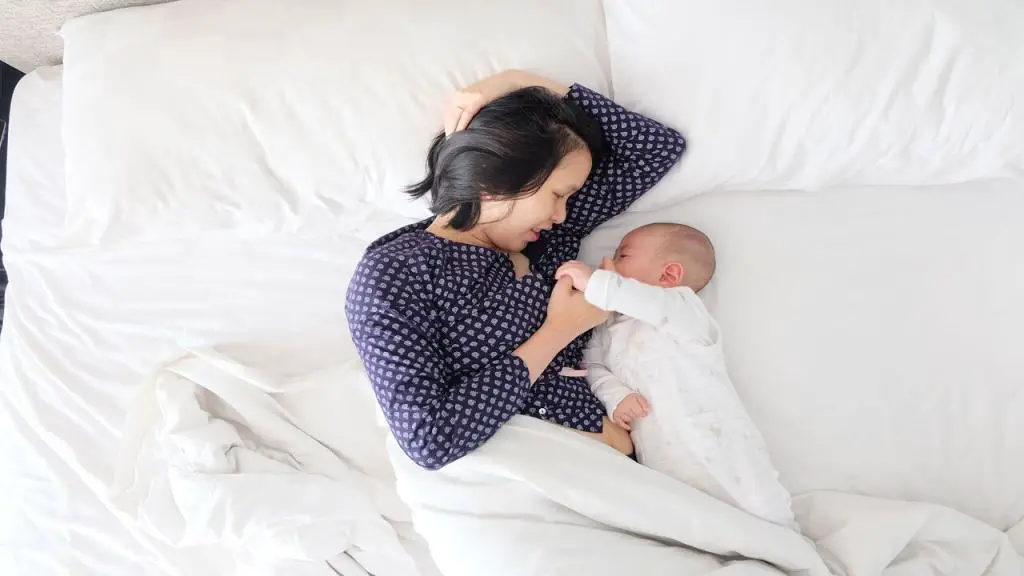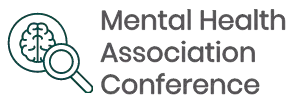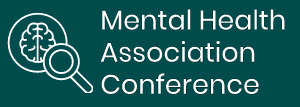The arrival of a new baby brings immense joy, but it can also introduce a wave of overwhelming emotions and challenges. Many new mothers experience postpartum anxiety, a common condition characterized by persistent and excessive worry, restlessness, and a sense of unease. Recognizing the importance of addressing postpartum anxiety, this comprehensive article explores the best anxiety treatments after childbirth.
We will delve into various therapeutic approaches, lifestyle modifications, and self-care practices that can empower new mothers to navigate anxiety and embrace the journey of motherhood with serenity and confidence.
The Significance of Postpartum Anxiety
Postpartum anxiety is a condition that affects approximately 10-15% of new mothers and is often underdiagnosed and overlooked.
It can manifest in various ways, including persistent worry about the baby’s well-being, excessive fear, irritability, difficulty sleeping, and physical symptoms such as heart palpitations. Understanding the significance of postpartum anxiety is crucial in order to identify and seek appropriate treatment.
Differentiating Postpartum Anxiety from Postpartum Depression
Postpartum anxiety and postpartum depression share some similarities, but they are distinct conditions. While postpartum depression is characterized by a deep and persistent feeling of sadness, postpartum anxiety involves excessive worry and heightened anxiety.
It is possible for a mother to experience both conditions simultaneously. Recognizing the unique features of postpartum anxiety allows for targeted and effective treatment.
Effective Anxiety Treatments after Childbirth

Therapy as a Supportive Tool
Therapy provides a supportive and non-judgmental space for mothers to navigate the emotional challenges of motherhood, strengthen their mental well-being, and foster a positive and fulfilling postpartum experience. The following two therapeutic approaches are the most effective for new mothers.
1. Cognitive-Behavioral Therapy (CBT)
Cognitive-Behavioral Therapy (CBT) is an evidence-based therapeutic approach widely used in treating postpartum anxiety. CBT aims to identify and modify negative thought patterns and behaviors that contribute to anxiety.
A trained therapist helps new mothers recognize distorted thinking, such as catastrophic thinking or excessive worry and replaces it with more balanced and realistic thoughts. Through CBT, women develop effective coping strategies to manage anxiety symptoms.
In CBT sessions, the therapist works collaboratively with the mother to set treatment goals and tailor interventions to her specific needs. The therapist may use techniques such as cognitive restructuring, where negative thoughts are challenged and reframed, and exposure therapy, gradually exposing the mother to feared situations to reduce anxiety.
Additionally, relaxation techniques, breathing exercises, and stress management strategies are often incorporated to promote a sense of calm and reduce physiological symptoms of anxiety.
CBT for postpartum anxiety may also address specific concerns related to motherhood, such as fear of harming the baby or difficulty adjusting to new roles and responsibilities. By empowering new mothers with practical skills and strategies to manage anxiety, CBT equips them with lifelong tools that can be utilized beyond the postpartum period.
2. Interpersonal Therapy (IPT)
Interpersonal Therapy (IPT) is another therapeutic approach commonly used in treating postpartum anxiety. IPT focuses on improving interpersonal relationships and resolving difficulties in social interactions that contribute to anxiety. This therapy recognizes that changes in roles, relationships, and identity during the postpartum period can impact a woman’s emotional well-being.
In IPT sessions, the therapist helps new mothers explore and address specific interpersonal issues, such as conflicts with partners, changes in social support networks, or difficulties in communication. The therapy emphasizes building and strengthening social support systems, as well as enhancing problem-solving skills and coping strategies.
By improving interpersonal relationships, IPT aims to reduce anxiety and create a supportive environment for the mother and her baby.
Both CBT and IPT are typically structured as short-term therapies, ranging from several weeks to a few months, depending on the individual’s needs and progress. The therapeutic process is collaborative and goal-oriented, with the therapist providing guidance, support, and feedback throughout the treatment.
By engaging in therapy, new mothers have the opportunity to express their concerns, gain insights into their anxiety, develop effective coping skills, and receive validation and support in a non-judgmental environment.
If you’re a new mother and find it challenging to attend in-person therapy sessions, you may consider exploring online therapy platforms such as BetterHelp. These platforms offer a convenient and accessible way to access professional help from the comfort of your own home.
With BetterHelp, you can connect with licensed therapists who specialize in postpartum anxiety and receive support through secure messaging, live chat, phone calls, or video sessions.
Online therapy allows you to have flexibility in scheduling sessions that fit into your busy routine as a new mother. It provides a confidential space to discuss your concerns, receive guidance, and develop coping strategies to manage postpartum anxiety. Remember, seeking help is a sign of strength, and with platforms like BetterHelp, support is just a few clicks away.
Medication Considerations
While non-pharmacological approaches are often the first line of treatment for postpartum anxiety, medication may be necessary in certain cases. It is important to consult with a healthcare provider to discuss the potential risks and benefits of medication, taking into account the individual’s specific circumstances, the severity of symptoms, and breastfeeding considerations.
1. Selective serotonin reuptake inhibitors (SSRIs)
Selective serotonin reuptake inhibitors (SSRIs) are a commonly prescribed class of antidepressant medications that can effectively treat anxiety symptoms, including those associated with postpartum anxiety. SSRIs work by increasing the levels of serotonin, a neurotransmitter involved in mood regulation, in the brain.
SSRIs such as sertraline (Zoloft), fluoxetine (Prozac), and escitalopram (Lexapro) have been extensively studied and are considered relatively safe options during breastfeeding.
They have a lower risk of side effects and are generally well-tolerated by most individuals. However, it is important to consult with a healthcare provider to determine the most appropriate SSRI and dosage for each individual.
2. Benzodiazepines
Benzodiazepines, another class of medications, may be prescribed to manage acute or severe anxiety symptoms. However, their use in postpartum anxiety is generally limited due to the potential risks they pose, such as sedation, dependency, and withdrawal symptoms. Benzodiazepines are typically prescribed for short-term use and under close medical supervision when other treatment options have been ineffective or when immediate relief is necessary.
The decision to use benzodiazepines during the postpartum period requires careful consideration of the risks and benefits, and close monitoring by a healthcare provider is crucial. In general, these medications are not recommended for long-term use or as a first-line treatment for postpartum anxiety.
It is important to note that medication management during breastfeeding requires careful evaluation and consideration of the potential transfer of medication through breast milk to the infant. Healthcare providers can provide guidance on safe and appropriate medication choices, taking into account the individual’s needs and the specific circumstances of breastfeeding.
Lifestyle Modifications and Self-Care Practices
In addition to therapy and medication, lifestyle modifications and self-care practices play a vital role in managing postpartum anxiety. These include:
- Prioritizing Sleep: Adequate rest is crucial for mental well-being. New mothers should strive to establish a sleep routine, delegate tasks, and seek support from partners or family members to ensure sufficient rest.
- Seeking Social Support: Building a support network of trusted individuals can provide emotional support, practical assistance, and reassurance. Joining postpartum support groups or online communities can connect new mothers with others experiencing similar challenges.
- Self-Care and Stress Reduction: Engaging in activities that promote relaxation and self-care, such as gentle exercise, mindfulness practices, and hobbies, can help reduce anxiety. Allocating dedicated time for self-care activities is essential for nurturing the mental and emotional well-being of new mothers.
Conclusion
Navigating postpartum anxiety requires compassion, support, and effective treatment strategies. By recognizing the signs and symptoms of postpartum anxiety and embracing the best anxiety treatments available, new mothers can find solace in knowing that they are not alone in their journey.
Through therapy, medication when necessary, lifestyle modifications, and self-care practices, women can navigate postpartum anxiety with resilience, reclaim their well-being, and foster a nurturing environment for themselves and their newborns.
FAQ’s
While some cases of postpartum anxiety may improve on their own over time, seeking treatment is strongly recommended.
Without intervention, postpartum anxiety can persist and negatively impact a mother’s well-being and her ability to care for herself and her baby. Seeking support and treatment can lead to a faster recovery and provide valuable tools for managing anxiety.
Yes, postpartum anxiety can affect bonding with the baby. Excessive worry and fear may interfere with the mother’s ability to fully engage and connect with her baby. Seeking support and treatment can improve the bonding process.
Breastfeeding itself does not worsen postpartum anxiety. However, the demands and challenges of breastfeeding can contribute to overall stress levels. It is important to seek support and establish a support system to manage postpartum anxiety effectively.
Yes, postpartum anxiety can affect future pregnancies. Women who have experienced postpartum anxiety in previous pregnancies are at a higher risk of developing it again. It is important to be proactive in seeking support and treatment during subsequent pregnancies.
Additional Posts:


![Are Nootropics Addictive [Addictive Potential of Nootropics]](https://www.nlpaconference.org/wp-content/uploads/2024/02/Are-Nootropics-Addictive-500x383.jpg)

